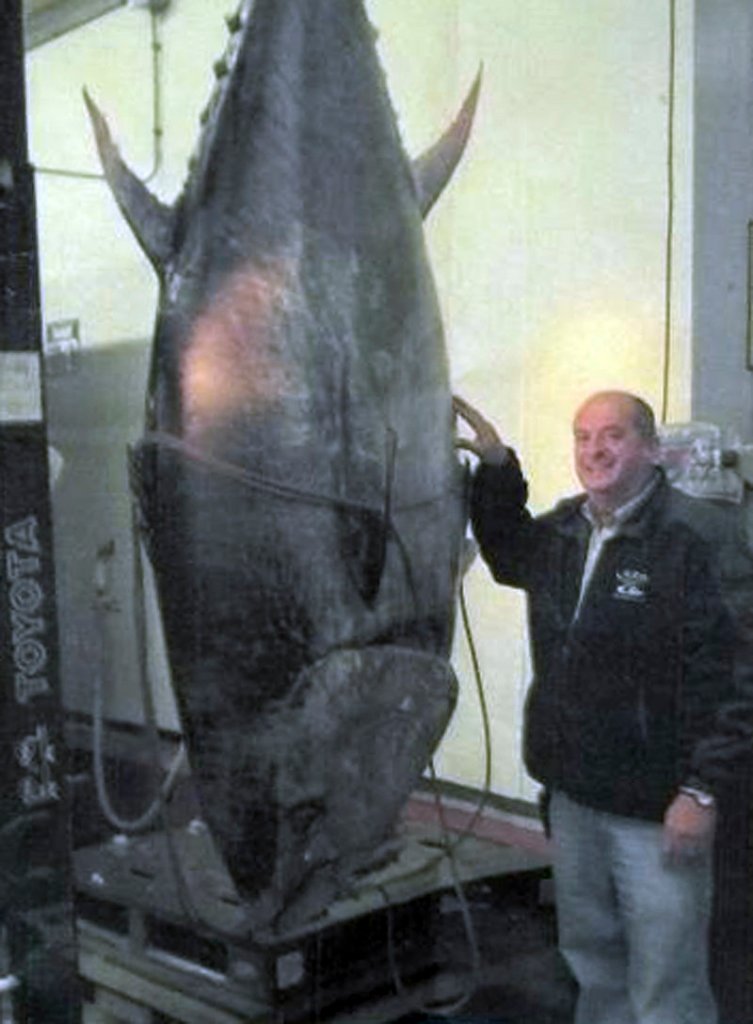NEW BEDFORD, Mass. — It’s the big one that got taken away.
Local fishing boat owner Carlos Rafael was elated when one of his trawlers snared an 881-pound bluefin tuna earlier this month.
But the joy was short-lived. Federal fishery enforcement agents seized the fish when the crew returned to port Nov. 12.
Rafael had tuna permits, but was told that catching tuna with a net is illegal. It has to be done with handgear, such as rod and reel, harpoon or handline.
“We didn’t try to hide anything,” Rafael told The Standard-Times newspaper of New Bedford, a famous whaling-era port 50 miles south of Boston. “We did everything by the book. Nobody ever told me we couldn’t catch it with a net.”
A fish that big is hugely valuable, prized by sushi-lovers for its tender red meat. A 754-pound bluefin recently sold for nearly $396,000. One weighing 1,496 pounds was brought in off the coast of Nova Scotia in 1979 and is believed to be the largest ever caught.
Rafael’s fish will be sold overseas, and he’ll get no share of the proceeds if regulators find a violation, The Standard-Times reported. The money and any fine would instead go into the National Oceanic and Atmospheric Administration fund that also holds money collected for fishery fines.
Rafael said he thinks he’s going to surrender his tuna permits now.
“What good are they if I can’t catch them?” he said.
The tuna was likely inadvertently snagged as Rafael’s crew set a net to catch bottom-dwellers, he said.
“They probably got it in the mid-water when they were setting out and it just got corralled in the net,” Rafael said. “That only happens once in a blue moon.”
On Tuesday, the NOAA issued a reminder that bluefin tuna can’t be caught legally in trawl nets, even by accident.
The NOAA says the bluefin tuna now reproducing off the coast are below 30 percent of their population level in the 1970s, and the fish takes a long time to rebound because it’s slow to grow and reproduce.
The rules aim to take away any incentive to chase and keep the highly coveted fish, beyond what’s allowed.
“It is important to carefully follow the regulations so U.S. fishermen can retain their share, and the associated jobs and profits, of this international resource,” the NOAA said.
Send questions/comments to the editors.



Success. Please wait for the page to reload. If the page does not reload within 5 seconds, please refresh the page.
Enter your email and password to access comments.
Hi, to comment on stories you must . This profile is in addition to your subscription and website login.
Already have a commenting profile? .
Invalid username/password.
Please check your email to confirm and complete your registration.
Only subscribers are eligible to post comments. Please subscribe or login first for digital access. Here’s why.
Use the form below to reset your password. When you've submitted your account email, we will send an email with a reset code.